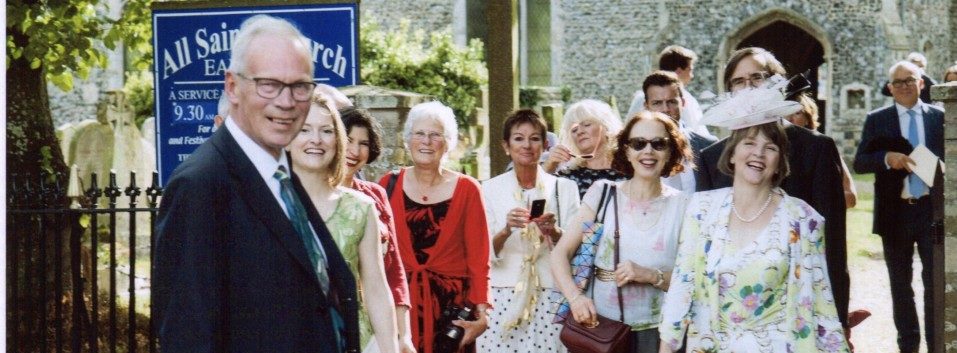I’m finally back to reading books, thank goodness – it’s not that I’ve been reading no books at all, but nowhere near as many, over several years, as I used to. There are various reasons – ageing eyesight means it’s not quite as easy to read by artificial light as it used to be; disappointment with a few too many prizewinning and highly reviewed novels; tiredness and lack of concentration. I don’t think blogging can be blamed as I read just as much for several years after I started blogging, but t’internets and social media in general did, very likely, not help.
A corner has certainly been turned, not least because of the enforced rest over the past few weeks since I had the operation. I’m still not as likely to be engrossed by a book as I used to be, but that will either come back or it won’t, that can’t happen by simple intention.
I was given the volumes so far of Peter Ackroyd’s History of England and am on the first of these – third book of the year, woo hoo! and he’s just told me something that (not that he could know it) I’ve known for the best part of half a century: that is, that the town of Baldock in Buckinghamshire* was originally named Baghdad – though I’m not sure that was the original spelling.
I have always been very fond of the writings of Adrian Bell* – if you ever come across any of his books, do pick them up. His first trilogy, the memoirs (somewhat fictionalised, I believe, in its details of individuals) of a young man starting out in farming in Suffolk in the 1920s is wonderful and his later books are enjoyable too. My mother gave me an account of his family growing up, called Apple Acre, which i still have somewhere, written in the early 1960s. As time went by, they became straightforward memoirs rather than semi-fiction and, as he wrote a weekly column in the local newspaper, they became compiled into books too.
Funny how things stick in your mind – one anecdote was about a talk he went to in his local village hall about the origin of place names. It was explained that Copdock, near Ipswich, was named after a large oak tree that had been pollarded and was a local landmark – the copped oak. Baldock was not a bald oak, however: it was founded and named by Knights Templar returning from the Crusades. The original pronunciation, I seem to remember he said, was more like Baldag.
My anecdotage. No other possible explanation. Back to my book now.
*Among his claims to fame are that he was the first compiler of crosswords for The Times; that he was the father of Martin Bell, the news correspondent and one-time MP; and that he was also the father of Anthea Bell, renowned translator of, among many other things, the Asterix books.
*Blue Witch says that Baldock is in Hertfordshire and, since I’m a bit hazy about what counties are where, let alone what towns are in them, I’m sure she’s right. Maybe county boundaries have shifted over the past thousand years, otherwise the great Peter Ackroyd has made a mistake and I foolishly didn’t check before passing it on. Sorry, whatever is the case.

Is there a Baldock in Buckinghamshire? If so, I’ve not heard of it and I lived in Bucks for my first 16 years. The one I know is in Hertfordshire.
Damn. I couldn’t remember and was a bit unsure, but the book said Buckinghamshire and, since he’d done the research, I assumed he was right.
When I used to see the sign Royston Baldock I always pictured an Edwardian Actor Manager.
I’m reading an Ackroyd at the moment but he gets murdered in Chapter 4.
I amuse myself by populating unwritten novels with characters after whom villages were surely named. We came across a number of them when we were staying in Lavenham.
Is his name Roger, Roger?
Baldock and Royston were places on the way to Suffolk from our home in the pre motorway days, I think the journey was sometimes broken at Baldock.
In spite of the many journeys by parents and later by myself one Christmas stands out, it was the first time our family had gone away at Christmas, my father hired a Ford Popular from a place in Hammersmith. The car had no heater, I can remember still the clothes I wore to keep warm, plus the grey army blankets wrapped around my sister and I. Fog had descended, my father drove very slowly, my mother had the front passenger window open to shine a torch to ensure we were on the road and to check signposts. Suddenly a great cheer went up amid shouts “There’s top chapel” as we crawled into Fressingfield. Top chapel was Methodist, bottom chapel was the coffin shaped Baptist chapel.